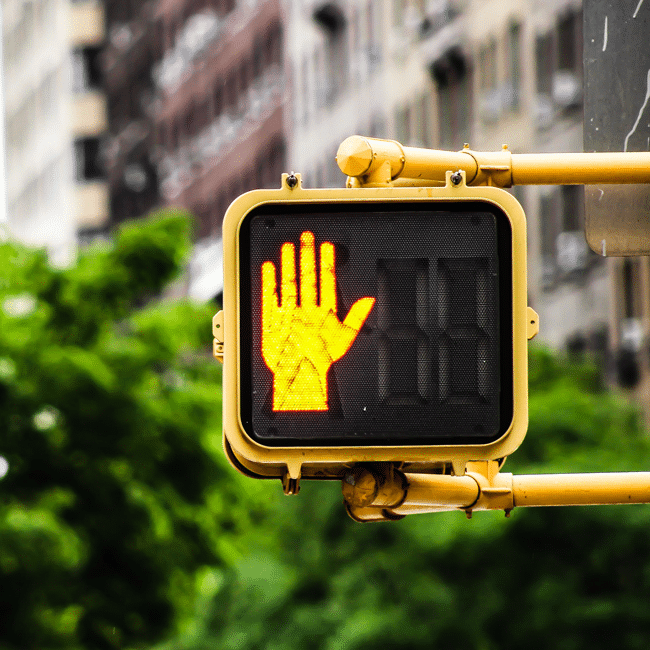Ethics Explainer: Dirty Hands

Ethics Explainer: Dirty Hands
ExplainerBusiness + LeadershipPolitics + Human Rights
BY The Ethics Centre 29 MAR 2016
The problem of dirty hands refers to situations where a person is asked to violate their deepest held ethical principles for the sake of some greater good.
The problem of dirty hands is usually seen only as an issue for political leaders. Ordinary people are typically not responsible for serious enough decisions to justify getting their hands ‘dirty’. Imagine a political leader who refuses to do what is necessary to advance the common good – what would we think of them?
Michael Walzer steps in
This was the question philosopher Michael Walzer asked when he discussed dirty hands, and another philosopher, Max Weber, had asked before him.
Walzer asks us to imagine a politician who is elected in a country that has been devastated by civil war, and who campaigned on policies of peace, reconciliation and an opposition to torture. Immediately after this politician is elected, he is asked to authorise the torture of a terrorist. The terrorist has hidden bombs throughout apartments in the city which will explode in the next 24 hours. Should the politician authorise the torture in the hope the information provided by the terrorist might save lives?
Finding common ground
This is a pretty common ethical dilemma, and different ethical theories will give different answers. Deontologists will mostly refuse, taking the ‘absolutist’ position that torture is an attack on human dignity and therefore always wrong. Utilitarians will probably see the torture as the action leading to the best outcomes and argue it is the right course of action.
What makes dirty hands different is it treats each of these arguments seriously. It accepts torture might always be wrong, but also that the stakes are so high it might also be the right thing to do. So, the political leader might have a duty to do the wrong thing – but what they are required to do is still wrong. As Walzer says, “The notion of dirty hands derives from an effort to refuse ‘absolutism’ without denying the reality of the moral dilemma”.
The paradox of dirty hands – that the right thing to do is also wrong – poses a challenge to political leaders. Are they willing to accept the possibility they might have to get their hands dirty and be held responsible for it? Walzer believes the moral politician is one who has dirty hands, acknowledges it, and is destroyed by it (because of feelings of guilt, punishment and so on): “it is by his dirty hands that we know him”.
Note that we’re not talking about corruption here where politicians get their hands dirty for their own selfish reasons, like fraudulent reelection or profit. What we’re talking about is when a politician might be obliged to violate their deepest personal values or the ethical creeds of their community in order to achieve some higher good, and how the politician should feel about having done so.
A remorseful politician?
Walzer believes politicians should feel wracked with guilt and seek forgiveness (and even demand punishment) in response to having dirtied their hands. Other thinkers disagree, notably Niccolo Machiavelli. He was also aware political leaders would sometimes have to do ‘what’s necessary’ for the public good. But even if those actions would be rejected by private ethics, he didn’t think decision makers should feel guilty about it.
Machiavelli felt indecision, hesitation, or squeamishness in the face of doing what’s necessary wasn’t a sign of a good or virtuous political leader – it was a sign they weren’t cut out for the job. Under this notion, the good political leader won’t just accept getting their hands dirty, they’ll do it whenever necessary without batting an eyelid.
Ethics in your inbox.
Get the latest inspiration, intelligence, events & more.
By signing up you agree to our privacy policy
You might be interested in…
Opinion + Analysis
Politics + Human Rights
You’re the Voice: It’s our responsibility to vote wisely
Opinion + Analysis
Politics + Human Rights, Relationships
Whose home, and who’s home?
Opinion + Analysis
Politics + Human Rights, Society + Culture
Why sometimes the right thing to do is nothing at all
Explainer
Business + Leadership, Politics + Human Rights
Ethics Explainer: Liberalism
BY The Ethics Centre
The Ethics Centre is a not-for-profit organisation developing innovative programs, services and experiences, designed to bring ethics to the centre of professional and personal life.
Ethics Explainer: Double-Effect Theory

Double-effect theory recognises that a course of action might have a variety of ethical effects, some ‘good’ and some ‘bad’.
It can be seen as a way of balancing consequentialist and deontological approaches to ethics.
According to the theory, an action with both good and bad effects may be ethical as long as:
- Only the good consequences are intended (we don’t want the bad effects to occur, they’re just inescapable, even if they can be foreseen).
- The good done by the action outweighs the harm it inflicts.
- The bad effect is not the means by which the good effect occurs (we can’t do evil to bring about good – the good and bad consequences have to occur simultaneously).
- The act we are performing is not unethical for some other reason (for example, an attack on human dignity).
- We seek to minimise, if possible, the unintended and inadvertent harm that we cause.
Double-effect is best explained through the classic thought experiment: the Trolley problem.
Imagine a runaway train carriage is hurtling down the tracks toward five railroad workers. The workers are wearing earmuffs and unable to hear the carriage approaching. You have no way of warning them. However, you do have access to a lever which will divert the train onto a side-track on which only one person is working. Should you pull the lever and kill the one man to save five lives?
Take a moment to think about what you would do and your reasons for doing it. Now, consider this alternative.
The train is still hurtling toward the five workers but this time there’s no lever. Instead, you’re a lightweight person standing on a bridge above the railroad. Next to you is a very large man who would be heavy enough to stop the train. You could push the man onto the tracks and stop the train, but it would kill the heavy man. Should you push him off the bridge?
Again, think about what you would do and why you would do it.
Did you say ‘yes’ in the first scenario and ‘no’ in the second? That’s the most common response, but why? After all, in each case you’re killing one person to save five. According to many consequentialists that would be the right thing to do. By refusing to push the man off the bridge, are we being inconsistent?
Double-effect theory provides a way of consistently explaining the difference in our responses.
In the first case, our intention is to save five lives. An unintended, foreseeable consequence of pulling the lever is the death of one worker. But because the stakes are sufficiently high, our intended act (pulling a lever to redirect a train) isn’t intrinsically wrong. The good consequences outweigh the bad. The negative outcomes are side-effects of our good action, and so, we are permitted to pull the lever.
In the second case, the death of the heavy man is not a side-effect. Rather, it is the means (pushing the man off the bridge to stop the train) by which we achieve our goal (saving the five men). The negative outcomes are not unavoidable side-effects that occur at the same time as the good deed. It is causally prior to and directly linked to the good outcome.
This fact has ethical significance because it changes the structure of the action.
Instead of ‘saving lives whilst unavoidably causing someone to die’, it is a case of ‘killing one person deliberately in order to save five’. In the lever scenario, we don’t need the one worker to die in order to save the five. In the latter, we need the heavy man to die. Which means when we push him, we are intentionally killing him.
Double-effect is used in a range of different contexts. In medical ethics it can be used to explain why it would be ethical for a pro-life pregnant woman to take life-saving medicine even if it would likely kill her unborn child (unintended side-effect). It also explains the actions of doctors who increase the dose of opiates to end pain – even though they know that the dosage will end the patient’s life.
In military ethics it explains how an air strike which causes some unavoidable ‘collateral damage’ (the death or injury of non-combatants) might still be permissible – assuming it meets the criteria described above and involves the proportionate and discriminate use of force.
Ethics in your inbox.
Get the latest inspiration, intelligence, events & more.
By signing up you agree to our privacy policy
You might be interested in…
Opinion + Analysis
Business + Leadership, Relationships, Science + Technology
Are we ready for the world to come?
Opinion + Analysis
Relationships
Is existentialism due for a comeback?
Opinion + Analysis
Relationships
“I’m sorry *if* I offended you”: How to apologise better in an emotionally avoidant world
Explainer
Business + Leadership, Politics + Human Rights, Relationships








